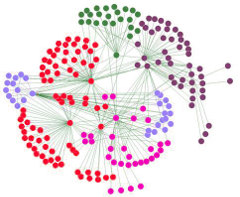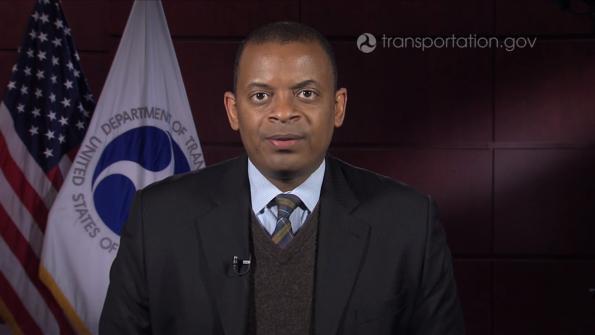Yikes - even Barack Obama wants to solve robocar "Trolley Problems" now
Submitted by brad on Thu, 2016-10-13 22:31I had hoped I was done ranting about our obsession with what robocars will do in no-win "who do I hit?" situations, but this week, even Barack Obama in his interview with Wired opined on the issue, prompted by my friend Joi Ito from the MIT Media Lab. (The Media Lab recently ran a misleading exercise asking people to pretend they were a self-driving car deciding who to run over.)




 Of course, for the social site to aggregate and use this data for its own purposes would be a gross violation of many important privacy principles. But social networks don't actually do (too many) things; instead they provide tools for their users to do things. As such, while Facebook should not attempt to detect and use political data about its users, it could give tools to its users that let them select subsets of their friends, based only on information that those friends overtly shared. On Facebook, you can enter the query, "My friends who like Donald Trump" and it will show you that list. They could also let you ask "My Friends who match me politically" if they wanted to provide that capability.
Of course, for the social site to aggregate and use this data for its own purposes would be a gross violation of many important privacy principles. But social networks don't actually do (too many) things; instead they provide tools for their users to do things. As such, while Facebook should not attempt to detect and use political data about its users, it could give tools to its users that let them select subsets of their friends, based only on information that those friends overtly shared. On Facebook, you can enter the query, "My friends who like Donald Trump" and it will show you that list. They could also let you ask "My Friends who match me politically" if they wanted to provide that capability.
 Recordings of mundane driving activity are less exciting and will be easier to gather. Real world incidents are rare and gold for testing. The sharing is not as golden, because each vehicle will have different sensors, located in different places, so it will not be easy to adapt logs from one vehicle directly to another. While a vehicle system can play its own raw logs back directly to see how it performs in the same situation, other vehicles won't readily do that.
Recordings of mundane driving activity are less exciting and will be easier to gather. Real world incidents are rare and gold for testing. The sharing is not as golden, because each vehicle will have different sensors, located in different places, so it will not be easy to adapt logs from one vehicle directly to another. While a vehicle system can play its own raw logs back directly to see how it performs in the same situation, other vehicles won't readily do that. Make no mistake, the cost will be real. The cost of regulations is rarely known in advance but it is rarely small. Regulations slow all players down and make them more cautious -- indeed it is sometimes their goal to cause that caution. Regulations result in projects needing "compliance departments" and the establishment of procedures and legal teams to assure they are complied with. In almost all cases, regulations punish small companies and startups more than they punish big players. In some cases, big players even welcome regulation, both because it slows down competitors and innovators, and because they usually also have skilled governmental affairs teams and lobbying teams which are able to subtly bend the regulations to match their needs.
Make no mistake, the cost will be real. The cost of regulations is rarely known in advance but it is rarely small. Regulations slow all players down and make them more cautious -- indeed it is sometimes their goal to cause that caution. Regulations result in projects needing "compliance departments" and the establishment of procedures and legal teams to assure they are complied with. In almost all cases, regulations punish small companies and startups more than they punish big players. In some cases, big players even welcome regulation, both because it slows down competitors and innovators, and because they usually also have skilled governmental affairs teams and lobbying teams which are able to subtly bend the regulations to match their needs.
 Here are some basic models of cost. I compare a low-cost 1-2 person robotaxi, a higher-end 1-2 person robotaxi, a 4-person traditional sedan robotaxi and the costs of ownership for a private car, the Toyota Prius 2, as
Here are some basic models of cost. I compare a low-cost 1-2 person robotaxi, a higher-end 1-2 person robotaxi, a 4-person traditional sedan robotaxi and the costs of ownership for a private car, the Toyota Prius 2, as  In other Uber news, Uber has announced it will sell randomly assigned Uber rides in their self-driving vehicles in Pittsburgh. If your ride request is picked at random (and because it's in the right place) Uber will send one of their own cars to drive you on your ride, and will make the ride free, to boot. Of course, there will be an Uber safety driver in the vehicle monitoring it and ready to take over in any problem or complex situation. So the rides are a gimmick to some extent, but if they were not free, it would be a sign of another way to get customers to pay for the cost of testing and verifying self-driving cars. The free rides, however, will probably actually cause more people to take Uber rides hoping they will win the lottery and get not simply the free ride but the self-driving ride.
In other Uber news, Uber has announced it will sell randomly assigned Uber rides in their self-driving vehicles in Pittsburgh. If your ride request is picked at random (and because it's in the right place) Uber will send one of their own cars to drive you on your ride, and will make the ride free, to boot. Of course, there will be an Uber safety driver in the vehicle monitoring it and ready to take over in any problem or complex situation. So the rides are a gimmick to some extent, but if they were not free, it would be a sign of another way to get customers to pay for the cost of testing and verifying self-driving cars. The free rides, however, will probably actually cause more people to take Uber rides hoping they will win the lottery and get not simply the free ride but the self-driving ride. Consider here in California, which is very solidly for Clinton. Nate Silver rates it as 99.9% (or higher) to go for Clinton. A vote for Clinton or Trump here is wasted. It adds a miniscule proportion to their totals. Clinton will fetch around 8 million votes. You can do the un-noticed thing of making it 8 million and 1, and you'll bump her federally by an even tinier fraction. Your vote can make no difference to the result (you already know that) and nor will it be noticed in the totals. You're throwing it away, getting an insignificant benefit for its use.
Consider here in California, which is very solidly for Clinton. Nate Silver rates it as 99.9% (or higher) to go for Clinton. A vote for Clinton or Trump here is wasted. It adds a miniscule proportion to their totals. Clinton will fetch around 8 million votes. You can do the un-noticed thing of making it 8 million and 1, and you'll bump her federally by an even tinier fraction. Your vote can make no difference to the result (you already know that) and nor will it be noticed in the totals. You're throwing it away, getting an insignificant benefit for its use.
 But it is a contest, and while it looks like
But it is a contest, and while it looks like  The same is true for trucks, but both trucks and buses have huge power needs which presents problems for having them be electric. Electric's biggest problem here is the long recharge time, which puts your valuable asset out of service. For trucks, the big win of having a robotruck is that it can drive 24 hours/day, you don't want to take that away by making it electric. This means you want to look into things like battery swap, or perhaps more simply tractor swap. In that case, a truck would pull in to a charging station and disconnect from its trailer, and another tractor that just recharged would grab on and keep it going.
The same is true for trucks, but both trucks and buses have huge power needs which presents problems for having them be electric. Electric's biggest problem here is the long recharge time, which puts your valuable asset out of service. For trucks, the big win of having a robotruck is that it can drive 24 hours/day, you don't want to take that away by making it electric. This means you want to look into things like battery swap, or perhaps more simply tractor swap. In that case, a truck would pull in to a charging station and disconnect from its trailer, and another tractor that just recharged would grab on and keep it going.
 Most importantly, it is far from complete. There is tons of stuff it's not able to handle. Some of those things it can't do are known, some are unknown. Because of this, it is designed to only work under constant supervision by a driver. Tesla drivers get this explained in detail in their manual and when they turn on the autopilot.
Most importantly, it is far from complete. There is tons of stuff it's not able to handle. Some of those things it can't do are known, some are unknown. Because of this, it is designed to only work under constant supervision by a driver. Tesla drivers get this explained in detail in their manual and when they turn on the autopilot.